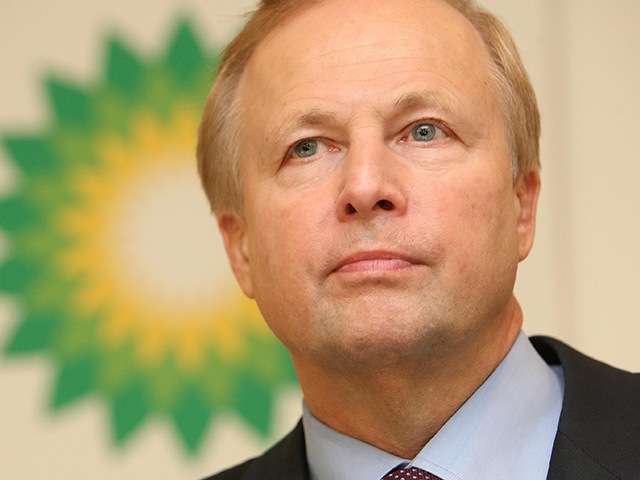
BP Plc reported first-quarter profit that was more than double analysts’ estimates as earnings from refining and trading offset lower crude prices.
The first results this year from the world’s largest oil companies demonstrate the protection against lower prices gained from processing and selling fuel. France’s Total SA also reported better-than-expected earnings today.
BP Chief Executive Officer Bob Dudley is setting the company up for a longer period of low oil prices by slashing spending, reviewing new projects and selling assets. Today’s results will help ensure he can maintain dividend payments until prices recover.
“We are resetting and re-balancing BP to meet the challenges of a possible period of sustained lower prices,” Dudley said in the statement. “The dividend is the first priority within our financial framework.”
Profit adjusted for one-time items and inventory changes dropped 19 percent from a year earlier to $2.6 billion, the London-based company said in a statement on Tuesday. That beat the $1.2 billion average forecast of 12 analysts surveyed by Bloomberg.
BP shares rose as much as 1.2 percent to 482.5 pence in London.
Oil prices have fallen to $60 a barrel from more than $100 a year ago, putting investors on guard for a steep drop in big oil’s profitability. Exxon Mobil Corp, Chevron Corp., Royal Dutch Shell Plc and Statoil ASA are reporting later this week.
BP said in February it expects capital expenditure this year to be $20 billion, lower than an earlier forecast of at least $24 billion. It spent about $23 billion in 2014.
“We will also look to take advantage of any opportunities presented by the lower price environment to further reduce capital expenditure or costs,” Dudley said.
The adjusted profit before interest and tax for the downstream business, which includes refining, was $2.2 billion for the first quarter, double that from a year ago. The average refining marker margin was $15.2 a barrel compared with $13.3 a year earlier.
“Those are very strong downstream numbers, including strong trading,” said Anish Kapadia, a London-based analyst at Tudor Pickering Holt & Co. “Trading income probably rose in the quarter because of the contango situation.”
Contango is a relatively rare situation when oil for delivery at a future date is more expensive than nearer month contracts, allowing companies to buy oil, store it and lock in profit by selling for delivery at a future date.
BP expects second-quarter refining margins to be similar to the first quarter as more oil processing plants shut for maintenance.
At Total, adjusted net income was $2.6 billion, beating the $2.17 billion average of nine estimates compiled by Bloomberg. The contribution from refining and chemicals more than tripled to $1.1 billion.
The company is “demonstrating its resilience and profiting from its integrated model,” CEO Patrick Pouyanne said in the statement.
Both BP and Total are joining U.S. competitors Chevron Corp. and Royal Dutch Shell Plc in selling assets to raise funds. The British company has offloaded more than $7 billion of assets in a $10 billion sale program planned for 2014 and 2015.
In the quarter, BP took a $332 million charge for liabilities related to the Gulf of Mexico oil spill in 2010, taking the total amount set aside for payments to $43.8 billion, according to the statement.
Recommended for you
